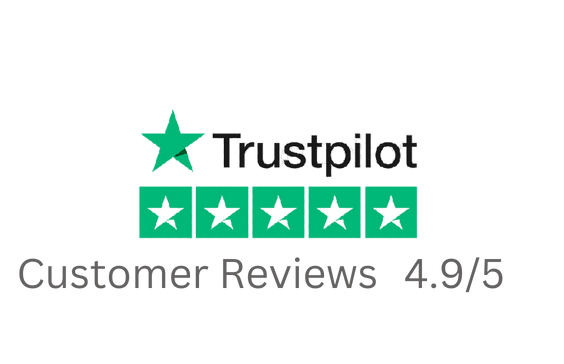
Dubai’s dynamic fitness industry and health-conscious population have created unprecedented opportunities for entrepreneurs seeking to establish sports and fitness facilities. The emirate’s commitment to wellness, coupled with a diverse international community, makes it an ideal destination for sports club license ventures. This comprehensive guide explores everything you need to know about obtaining a sports club license and building a successful fitness business in Dubai.
Understanding Dubai’s Fitness and Recreation Industry
The sports club license in Dubai market has experienced remarkable growth over the past decade, driven by increasing health awareness, government wellness initiatives, and a growing expatriate population. Dubai’s strategic location as a global business hub attracts fitness enthusiasts from around the world, creating a diverse customer base for sports and recreation facilities.
Market Growth and Opportunities
The UAE government’s Vision 2071 emphasizes citizen wellness and quality of life, positioning the fitness industry as a key contributor to national development goals. This supportive environment provides excellent opportunities for entrepreneurs to establish profitable sports clubs while contributing to community health and wellness objectives.
Industry Segments and Specializations
Dubai’s sports and fitness sector encompasses various segments including traditional gyms, specialized fitness studios, sports complexes, wellness centers, and recreational facilities. Each segment requires specific licensing approaches and compliance with distinct regulatory requirements established by Dubai’s Department of Economic Development (DED) and other relevant authorities.
Target Market Analysis
The market’s diversity allows entrepreneurs to target specific niches, from premium fitness clubs serving affluent communities to community-focused facilities providing affordable fitness options. Understanding market dynamics helps identify optimal positioning strategies and competitive advantages for your sports club business.
Dubai Sports Club License Types and Categories
Dubai’s regulatory framework recognizes multiple sports club license categories, each designed for specific types of fitness and recreational activities. The primary categories include general fitness centers, specialized sports facilities, wellness centers, and recreational complexes, with each requiring different compliance standards and operational permissions.
General Fitness Center Licenses
General fitness centers represent the most common license type, covering traditional gym facilities, group fitness classes, and basic wellness services. This category accommodates various business models from budget-friendly community gyms to premium fitness clubs with comprehensive amenities and personalized training services.
Specialized Sports Facility Permits
Specialized sports facilities cater to specific activities such as martial arts studios, dance academies, swimming facilities, tennis courts, or indoor climbing centers. These licenses require additional certifications, specialized equipment standards, and often specific instructor qualifications related to the particular sport or activity.
Wellness and Spa Facility Licensing
Wellness and spa facilities combine fitness services with therapeutic treatments, nutrition counseling, and holistic health approaches. This category requires additional health department approvals and compliance with medical service regulations, making it more complex but potentially more profitable for qualified operators.
Recreational Sports Complex Permits
Recreational sports complexes encompass large-scale facilities offering multiple sports activities, event hosting capabilities, and community recreation programs. These comprehensive facilities require substantial investment but can generate diverse revenue streams through membership fees, event bookings, and ancillary services.
Dubai Business License Requirements for Sports Facilities
Obtaining a Dubai business license for sports facilities involves navigating comprehensive regulatory requirements established by multiple government departments. The licensing process requires coordination between the Department of Economic Development, Dubai Municipality, Dubai Sports Council, and various other authorities depending on your specific services and facility type.
Primary Licensing Documentation
Primary licensing requirements include trade license application, facility compliance certification, safety clearances, and professional qualifications verification. Each requirement involves specific documentation, inspections, and approval processes that must be completed before commencing operations.
Health and Safety Compliance Standards
Health and safety compliance forms a crucial component of sports facility licensing, covering equipment safety standards, emergency procedures, first aid capabilities, and hygiene protocols. Facilities must demonstrate comprehensive safety measures to protect members and staff during all activities and operations.
Professional Certification Prerequisites
Professional certification requirements vary by facility type and services offered, with fitness trainers, specialized instructors, and facility managers requiring appropriate qualifications and certifications. Some activities may require additional certifications from recognized international fitness or sports organizations.
Insurance and Liability Coverage
Insurance and liability coverage requirements mandate comprehensive policies covering public liability, professional indemnity, equipment coverage, and member injury protection. These insurance requirements protect both the business and its members while ensuring compliance with UAE regulations and industry standards.
Business Setup Dubai Process for Fitness Centers
The business setup Dubai process for fitness centers requires systematic planning, regulatory compliance, and substantial financial investment. Successful setup involves multiple phases including market research, business planning, location selection, licensing procedures, and operational implementation.
Market Research and Business Planning
Initial planning and market analysis should assess local competition, target demographics, pricing strategies, and service differentiation opportunities. This foundational work helps determine optimal facility size, equipment requirements, staffing needs, and marketing approaches for sustainable business development.
Location Selection and Facility Design
Location selection and facility planning significantly impact your fitness center’s success potential. Consider factors such as accessibility, parking availability, demographics, competition proximity, and lease terms when evaluating potential locations. Facility design should optimize member experience while ensuring operational efficiency and regulatory compliance.
Equipment Procurement and Installation
Equipment procurement and installation requires careful selection of fitness equipment, safety systems, and facility amenities that align with your target market expectations and budget constraints. Quality equipment enhances member satisfaction and reduces maintenance costs while supporting your facility’s reputation and competitive positioning.
Staffing and Training Development
Staffing and training programs ensure your facility delivers professional services meeting member expectations and regulatory requirements. Develop comprehensive hiring criteria, training protocols, and ongoing professional development programs to maintain high service standards and regulatory compliance throughout your operations.
UAE Sports License Application and Approval Process
The UAE sports license application process involves multiple stages of documentation, review, and approval by relevant government authorities. Understanding this process helps entrepreneurs plan effectively and avoid common delays that could impact business launch timelines and financial projections.
Documentation Preparation Requirements
Documentation preparation requires comprehensive packages including business plans, facility layouts, equipment specifications, staff qualifications, insurance certificates, and financial projections. Each document must meet specific format and content requirements established by licensing authorities.
Application Submission and Review
Application submission and review involves presenting your complete documentation package to relevant authorities for evaluation. The review process includes document verification, facility inspections, compliance assessments, and interviews with key personnel to ensure regulatory compliance and operational readiness.
Approval Timelines and Processing
Approval timelines and milestones typically span 6-10 weeks depending on facility complexity, documentation completeness, and authority processing schedules. Understanding these timelines helps coordinate construction, equipment installation, staff recruitment, and marketing activities for smooth business launch.
License Activation and Implementation
License issuance and activation marks the final approval stage, allowing you to commence operations legally. This phase includes receiving official licenses, permits, and authorizations required for various aspects of your sports facility operations and member services.
Dubai Company Formation for Recreation Businesses
Dubai company formation for recreation businesses requires selecting appropriate corporate structures that provide operational flexibility while ensuring compliance with UAE business regulations. The formation process establishes the legal framework necessary for operating legitimate sports and fitness facilities.
Corporate Structure Selection Options
Corporate structure selection influences ownership arrangements, tax implications, operational flexibility, and expansion opportunities. Limited Liability Company (LLC) structures are most common for sports facilities, providing liability protection while allowing flexible management arrangements and profit distribution.
Shareholding and Partnership Frameworks
Shareholding and partnership arrangements must comply with UAE foreign ownership regulations while optimizing operational control and profit sharing among stakeholders. Understanding these requirements helps structure deals that satisfy regulatory compliance while meeting investor and operator expectations.
Registration Procedures and Legal Compliance
Registration procedures and compliance involve multiple steps including name reservation, memorandum preparation, authority submissions, and ongoing regulatory obligations. Each step requires specific documentation and adherence to established timelines and procedures.
Ongoing Corporate Management Obligations
Ongoing corporate obligations include annual license renewals, financial auditing, regulatory reporting, and compliance monitoring. Establishing systems for managing these obligations ensures continuous compliance and avoids penalties that could impact business operations.
Fitness Center License Dubai Cost Analysis
Fitness center license Dubai costs vary significantly based on facility size, location, equipment specifications, and service offerings. Understanding these cost components helps entrepreneurs develop realistic budgets and secure adequate financing for successful business establishment.
Initial Investment and Setup Costs
Initial licensing and setup costs typically range from AED 150,000 to AED 800,000, including license fees, facility preparation, equipment purchase, and professional service fees. Premium locations and comprehensive facilities require higher investments but potentially generate greater returns through premium pricing and membership fees.
Monthly Operational Expenses
Operational expense planning covers monthly costs including staff salaries, facility rent, utilities, equipment maintenance, insurance premiums, and marketing expenses. Developing detailed operational budgets ensures adequate cash flow management during initial business phases when membership building requires time and investment.
Revenue Projections and Profitability
Revenue projection modeling should consider membership fees, personal training services, group classes, retail sales, and ancillary services when estimating income potential. Realistic projections help determine break-even timelines, profitability targets, and return on investment expectations for stakeholders.
Financing Strategies and Capital Sources
Financing options and strategies include bank loans, investor partnerships, equipment financing, and working capital facilities. Exploring multiple financing sources helps secure optimal terms while maintaining adequate liquidity for business operations and growth opportunities.
Sports Facility License Regulatory Compliance
Sports facility license regulatory compliance encompasses multiple areas including health and safety standards, equipment regulations, staff certifications, and ongoing monitoring requirements. Maintaining compliance protects your business while ensuring member safety and service quality.
Health and Safety Protocol Implementation
Health and safety protocols require comprehensive policies covering equipment maintenance, facility hygiene, emergency procedures, and incident reporting. Regular training programs ensure staff members understand and implement these protocols consistently throughout daily operations.
Equipment Standards and Maintenance Requirements
Equipment safety and maintenance standards mandate regular inspections, preventive maintenance schedules, and safety certifications for all fitness equipment. Proper maintenance reduces liability risks while ensuring optimal equipment performance and member satisfaction.
Staff Certification and Training Standards
Staff certification and training requirements vary by position and services offered, with fitness trainers requiring recognized qualifications and ongoing professional development. Maintaining proper certifications protects your business while ensuring quality service delivery to members.
Regulatory Monitoring and Audit Compliance
Regulatory monitoring and audits involve periodic inspections by various authorities to ensure ongoing compliance with licensing conditions and safety standards. Preparing for these inspections through regular self-assessments and compliance reviews helps maintain good standing with regulatory authorities.
Dubai Fitness Business Marketing and Growth Strategies
Dubai fitness business success depends on effective marketing strategies that build brand awareness, attract target customers, and generate sustainable membership growth. Modern fitness marketing combines digital strategies with community engagement to reach diverse customer segments effectively.
Digital Marketing and Online Brand Presence
Digital marketing and online presence utilizes social media platforms, search engine optimization, and targeted advertising to reach potential members. Effective digital strategies showcase your facility’s unique features while building community connections and driving membership inquiries and conversions.
Community Engagement and Strategic Partnerships
Community engagement and partnerships help establish your facility within local neighborhoods while creating referral opportunities through corporate wellness programs, community events, and strategic partnerships with healthcare providers, schools, and local businesses.
Member Retention and Loyalty Programs
Membership retention and loyalty programs focus on delivering exceptional member experiences through personalized services, community building activities, and value-added programs that encourage long-term membership commitments and positive word-of-mouth referrals.
Business Expansion and Service Diversification
Expansion and diversification opportunities include additional locations, specialized program development, online training services, and complementary business ventures that leverage your existing member base and operational expertise for sustainable growth.
Sports Club Business License Success Factors
Sports club business license success requires combining regulatory compliance with operational excellence, customer service, and strategic business management. Understanding these success factors helps entrepreneurs build sustainable and profitable fitness businesses in Dubai’s competitive market.
Operational Excellence and Service Quality Management
Operational excellence and service quality form the foundation of successful sports facilities, requiring consistent delivery of high-quality services, well-maintained facilities, and professional staff interactions that exceed member expectations and build loyalty.
Financial Management and Profitability Optimization
Financial management and profitability involves careful cost control, revenue optimization, and cash flow management to ensure sustainable operations while generating adequate returns for stakeholders. Effective financial management enables reinvestment in facility improvements and business growth.
Human Resources and Staff Development Programs
Staff development and retention programs help maintain service quality while reducing turnover costs and training requirements. Investing in staff development creates positive workplace culture while ensuring consistent service delivery that supports member satisfaction and retention.
Innovation and Market Adaptation Strategies
Innovation and adaptation capabilities enable facilities to evolve with changing market demands, incorporate new fitness trends, and respond to competitive pressures while maintaining operational efficiency and member satisfaction.
Conclusion
Establishing a sports club license in Dubai presents excellent opportunities for entrepreneurs seeking to enter the UAE’s thriving fitness and wellness sector. Success requires comprehensive planning, regulatory compliance, substantial investment, and ongoing commitment to operational excellence and member service.
The licensing process involves navigating complex regulatory requirements while building facilities that meet international standards for safety, quality, and member experience. With proper planning and execution, sports facilities can generate sustainable profits while contributing to Dubai’s wellness objectives and community health.
Dubai’s supportive business environment, diverse population, and government emphasis on wellness create favorable conditions for fitness businesses. However, success requires understanding local market dynamics, maintaining regulatory compliance, and delivering services that meet the high expectations of Dubai’s international community.
For expert guidance throughout your sports facility licensing journey, consider partnering with experienced business setup consultants in Dubai, UAE who specialize in fitness industry licensing and can provide comprehensive support for your venture.
Frequently Asked Questions (FAQs)
How long does it take to obtain a sports club license in Dubai?
The complete licensing process typically takes 6-10 weeks from initial application to final approval, depending on facility complexity and documentation completeness.
What is the minimum investment required to start a fitness center in Dubai?
Initial investment ranges from AED 150,000 to AED 800,000 depending on facility size, location, equipment specifications, and service offerings.
Can foreign nationals own 100% of a sports club in Dubai?
Yes, foreign nationals can own 100% of sports facilities in most business zones, though some areas may require local partnership arrangements.
What qualifications are required for fitness trainers and instructors?
Trainers must hold recognized fitness certifications from accredited organizations, with specific requirements varying by specialty and services offered.
Are there restrictions on operating hours for fitness facilities?
Operating hours may be subject to local regulations and lease agreements, with some areas having specific restrictions on early morning or late evening operations.
What insurance coverage is required for sports facilities?
Comprehensive coverage including public liability, professional indemnity, equipment insurance, and member injury protection is mandatory for all facilities.
How often must sports club licenses be renewed?
Most licenses require annual renewal with updated documentation, compliance verification, and payment of renewal fees to maintain valid operational status.
Can sports clubs offer additional services like nutrition counseling or spa treatments?
Additional services may require supplementary licenses and certifications, depending on the specific services offered and regulatory requirements for those activities.








